Nour Arida Defines Success On Her Own Terms
The Lebanese multi-hyphenate is a force for good
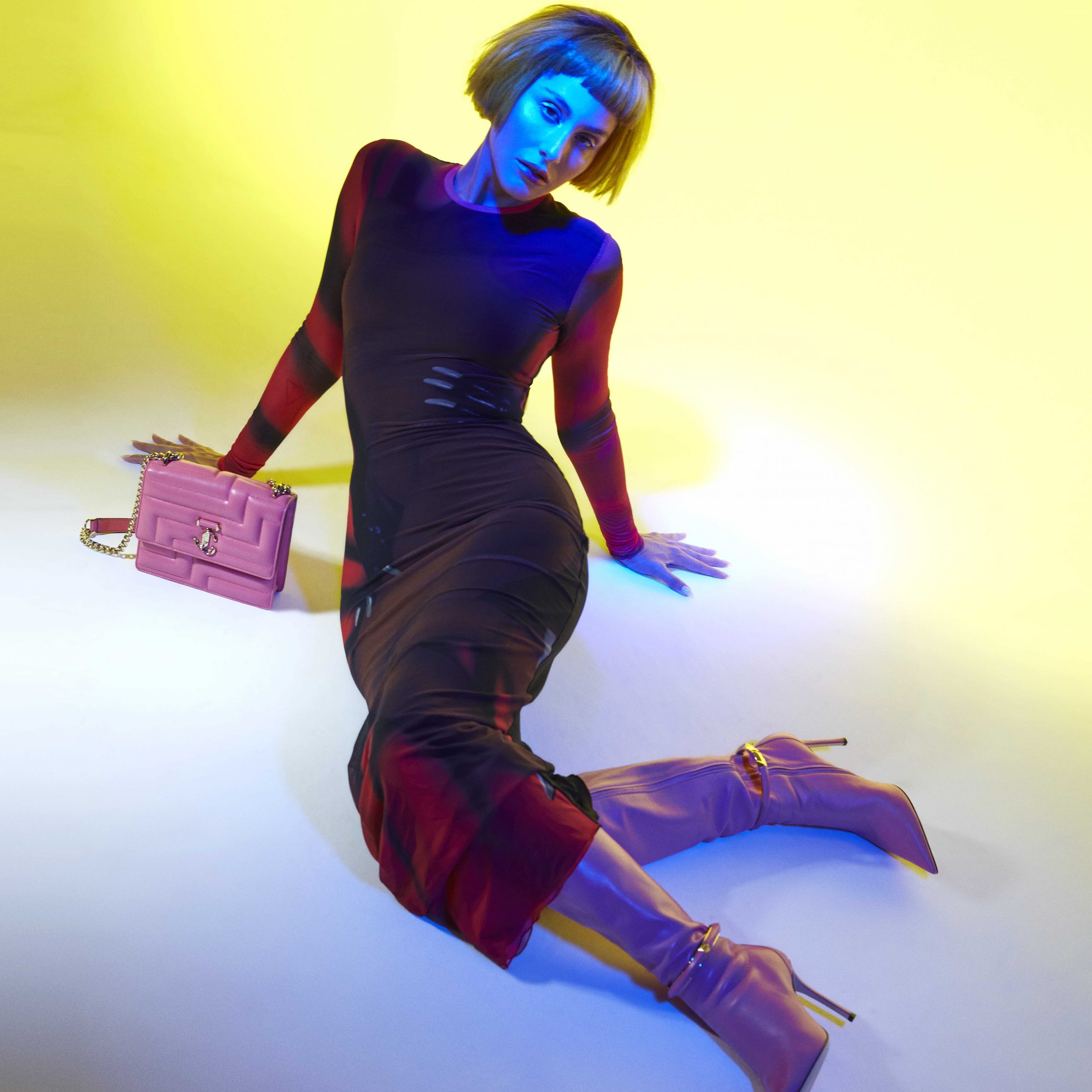

Nour Arida is not your average Arab woman, and she doesn’t really want to be.
It’s 10:30am, and autumn has officially hit Paris. The last of the morning’s sun pours into Arida’s home office, highlighting her flawless, makeup-free skin. She is perched at a desk in front of her phone camera and dialling in by Zoom. Her hair is loose and naturally tousled and she is wearing an oversized grey hoodie that cloaks her diminutive frame. It’s a look a million miles from her YUNG cover shoot (“I love art so for me I loved this shoot. It was so out of the box”) but it’s also an effortless chic aesthetic that the 33-year-old has successfully built her brand on.
You see, Arida refuses to conform to social norms, she won’t bow down to bullies and she will be 100 per cent, unapologetically herself. It’s a formula many, including her first manager, could say was risky, but for Arida it paid off.
When she first started out that same former manager would tell her what to wear, how to pose, how to fix her hair and to ‘wear more makeup’. But it wasn’t her. “It’s hard to be accepted in the Middle East if you are not the typical Arab woman,” she says, her almond-shaped eyes wide with conviction. “But I can’t fake it and be someone I am not.”
Eventually, Arida gave her manager an ultimatum: “I either do it my way, or we stop.” The outcome? She did it her way. She changed manager (it’s now her husband, George) and she became the first Lebanese model to receive international acclaim. It’s an accolade she’s incredibly proud of. “As Arab women you are raised to feel you are not good enough or that you will never make it,” she explains of the pressures. “We are led to believe that we can only be known in the Middle East. I never thought I could make it internationally. So, now when I walk in the streets of Paris and European girls come to me and tell me I’m an inspiration, it’s crazy. They can be inspired by so many European or American women, but they are inspired by me – an Arab, a Lebanese woman.”
She’s the first to admit that her route to becoming a global role model was a “random” one. Here’s the gist: She studied economics and mathematics at the American University of Beirut. However, with a love for fashion burning deep – her mother and grandma also worked in the industry and “always loved to dress nicely” – she got a job as a buyer. After seven years she decided to take the next step, launching a blog and a social media account, showcasing behind the scenes of her glam, but also normal, life. Unpretentious insights became her USP, rapidly garnering followers and, with them, viral attention.
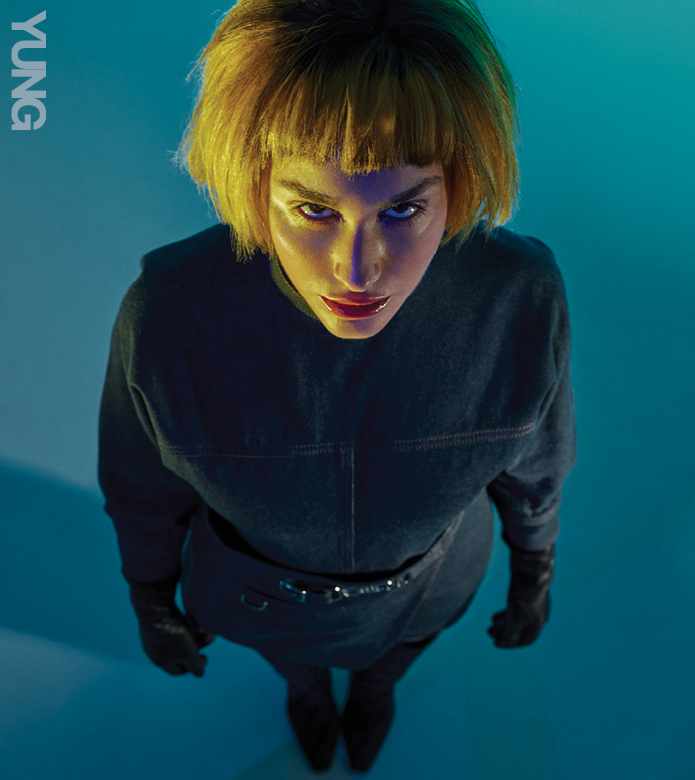
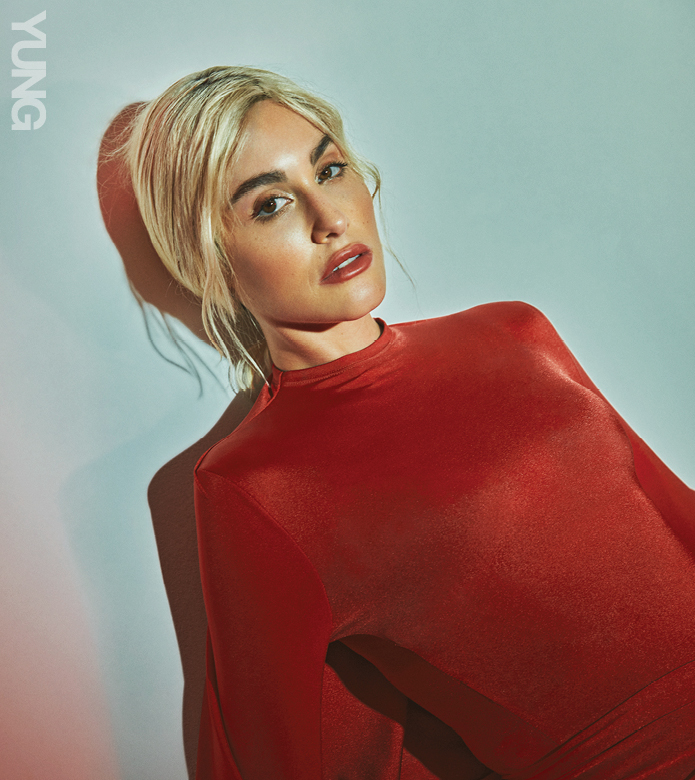
When she was 28, Arida and George booked a meeting with Elite modelling agency. “I went in with zero expectations,” she explains, shaking her head and shoulders as if to emphasise the doubt. “Agencies usually hire models from when they are 14. I was too old and I was Arab.” Yet, in spite of her reservations the agency signed her on the spot. As well as working closely with fashion brands including Givenchy, Balenciaga and Celine, Arida has since been the global face of Sephora and most recently Bocuheron and Make Up Forever. She’s also launched a fashion collection with MOTF Official, including key wardrobe basics that represent her own style.
The career trajectory is unconventional for sure, but by establishing her brand identity – essentially her just being genuine – she has tapped into a rare niche. She portrays her reality, but it’s not a reality show, largely because she sets boundaries.
Even though it plays an integral part in her success, Arida doesn’t obsess over social media. In fact, she cut down her activity from 14 to four posts a week, and only checks her accounts first thing at breakfast and last thing before bed. About two hours in total, yet her engagement continues to rise, a success she credits to her original content.
“I made it because I was myself. People will love and accept you when you are yourself,” explains Arida, whose global acclaim now allows her to pick and choose work, aligning herself with brands that share her values. In doing so she has more time to focus on projects closer to her heart, raising awareness for causes and charities from UNICEF to UNHCR and a children’s cancer centre. Since summer she has been working on a “top secret” campaign (launching in 2023) for Abaad, a Lebanese NGO against domestic violence.
“Female empowerment, especially in the Middle East, is an important issue for me,” she says, expressing her desire to offer a voice for those who can’t speak out. Her devotion to this cause is clear. There’s a shift in body language. She has so much to say that her hands move as fast as the words she reels out. This is not a career but a vocation. She talks in depth about the messages (more than 25,000) she receives from women asking for advice. In particular a lady from Kuwait who messaged at 3am sharing images of her abuse. Arida was able to find a number of someone the girl could reach out to, but that’s not always the case. Finding help, and effecting change is not simple but it’s a challenge Arida wants to focus on.
“It is barbaric to see where the world is on these issues with women, especially in the Middle East,” she says. “When I come to Europe I feel everyone is a feminist but when you go back to the Middle East you feel we are 20 years behind.”
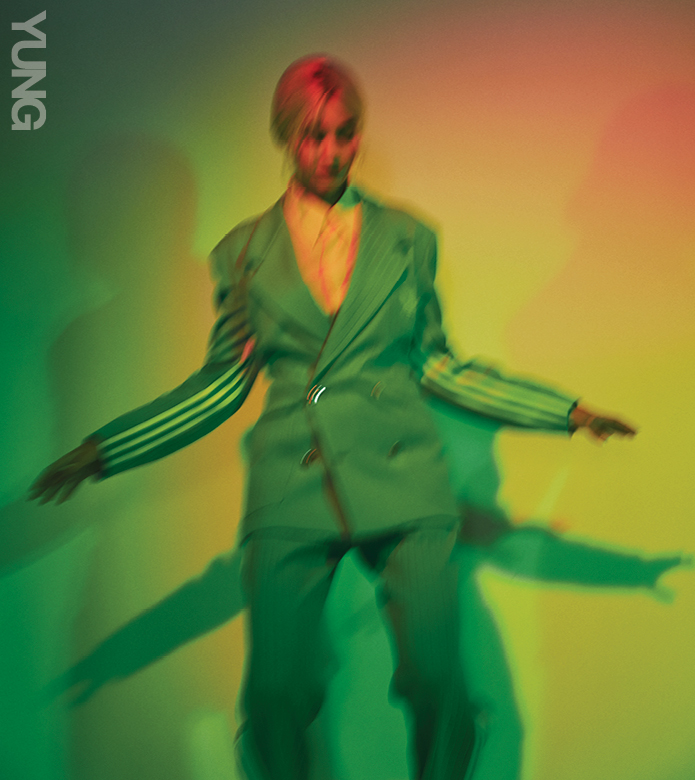
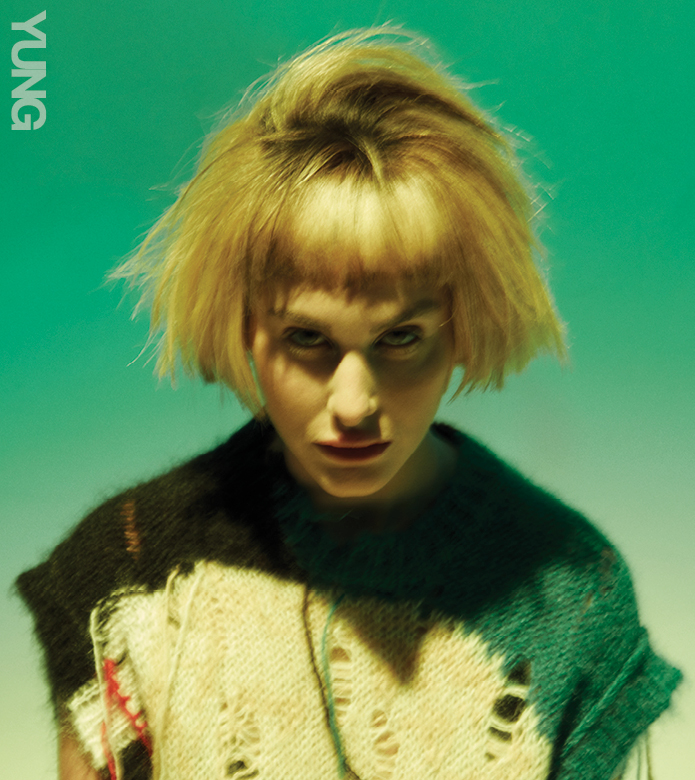
Another issue important to Arida is bullying, utilising her social media clout of more than 10 million followers to raise awareness. However, this time the spokesperson is her seven-year-old daughter, Ayla. In a recent Instagram reel, Ayla talks about being bullied at school, with one student even threatening to glue her mouth shut. The bullies were never reprimanded so Arida and George made the decision to change Ayla’s school.
It’s an all too familiar story, which is why Arida is so adamant to share the experience. “I created the video because I wanted other kids to hear Ayla’s story,” she explains. “I want bullies to listen and hear that it’s not OK and I want those who are being bullied to feel that they have to talk to their parents.”
Arida had Ayla when she was just 26 years old and compares their relationship to that of best friends. Their bond is undeniable with Ayla, a mini-me of her mother accompanying her on Fashion Weeks and often guest appearing on social media posts. The decision to include her daughter in the latter is a topic Arida is often challenged on. “People ask me, ‘Do you think the comments on social media are affecting Ayla?’ But the truth is we never talk about social media with her. She doesn’t know.”
Ayla also doesn’t know because her mum tackles the trolls head-on. “I reply to all of the negative comments,” she says. “I am one of the few that do. It’s not OK to bully online. Just because you are behind your screen you cannot say whatever you want – it still hurts.”
Ever the optimist, she instead appreciates the positive energy her daughter has experienced from her exposure – Ayla is fast becoming as recognisable as her mother. Arida says, “Ayla asks me why are people talking to her and I say, ‘It’s because people love you. They love how smart you are and how you make them laugh. You should be grateful for that.’”
Teaching her daughter lessons in empowerment and ensuring family values are at the core of every decision she makes, Arida, a modern day multi-hyphenate (designer-model-ambassador), insists she will always be a mother first and foremost. Every day the family sits down for dinner. No phones are allowed, and they each discuss their day, including any issues – “It’s family time only, so no talk of work. It’s just about us”. Arida believes if parents can be open and honest with their children it will enable them to do the same.
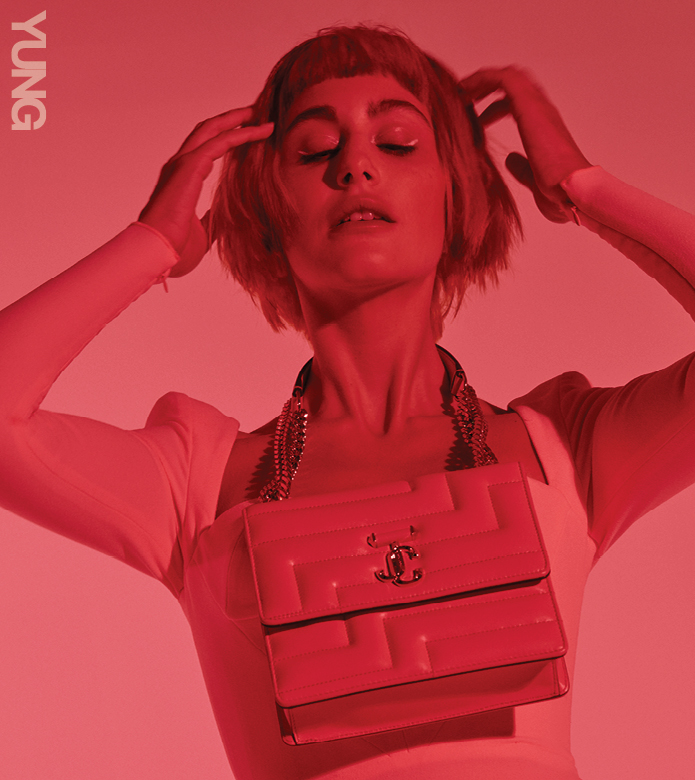
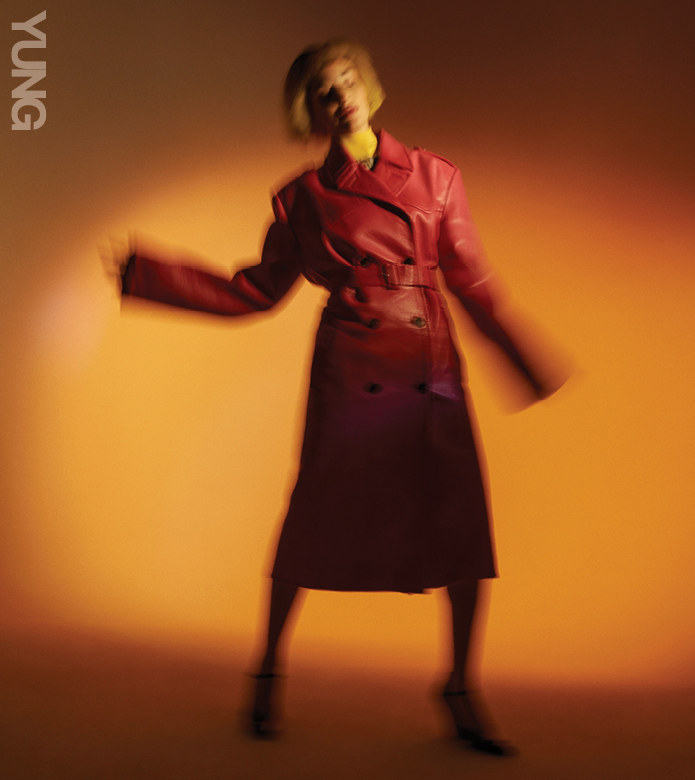
“I want to encourage Ayla to talk about things,” shares Arida on her parenting style. “Ayla being outspoken and having this confidence is the most important thing. But I don’t tell her things like, ‘You can be the next president.’ For me, I tell her, ‘You can be anything you like, and you can do anything that you want, but you must be delicate and don’t bully.’”
It’s a sentiment shared with her husband whose names she drops into virtually every sentence. It oozes #couplegoals, especially as the pair have been together for almost nine years, (married for almost eight). There’s love and respect in every “we” and “George” uttered. Again, even more impressive when you consider they’re also work partners (Nour Arida Co and GCM Management & Consulting). However, Arida admits it’s not all been plain sailing.
“Balancing our relationship and work was really hard at first,” she reveals earnestly. “We used to fight a lot because we were not only living in the same space, but we were also working together in the same place – it was all day together. It was hard to put a line between working and our personal lives. But we got the hang of it. Now we understand each other. We know when to give the other person their time. We know when to stop talking about work – especially when Ayla is with us.”
With several key product launches for 2023 in the pipeline (“Sorry, I can’t tell you anymore than that”), it’s a partnership that’s clearly working. Yet the hardest business decision to-date will always be choosing to relocate to Paris, leaving their beloved hometown of Beirut behind. However, it was a decision that was taken out of their control on August 4, 2020.
Arida and Ayla were in their home in Beirut, George was outside playing tennis on a neighbouring court, when the blast that killed more than 200 people ripped through their city and devastated Lebanon’s capital. “Ayla was no longer safe so we had to leave,” says Arida, recalling the horrific day. “She was next to me screaming. It really traumatised her and we had to take her to a psychologist. We had to get out for Ayla’s mental health.”
Despite the family living in Paris for two years, Beirut is still very much part of their heart and soul. With family and friends still in the city, they visit every single holiday. “I can’t forget my life in Beirut,” adds Arida. “It was one of my conditions with George – we have to travel back to see family. I grew up around my grandparents and I think that’s important for Ayla, too.”
But it’s not just family, it’s the spirit of their homeland that Arida misses. “Lebanon is the heart of the Middle East. It’s a country where everyone is so generous and resilient in spite of all the wars. I am where I am today because of Beirut.”
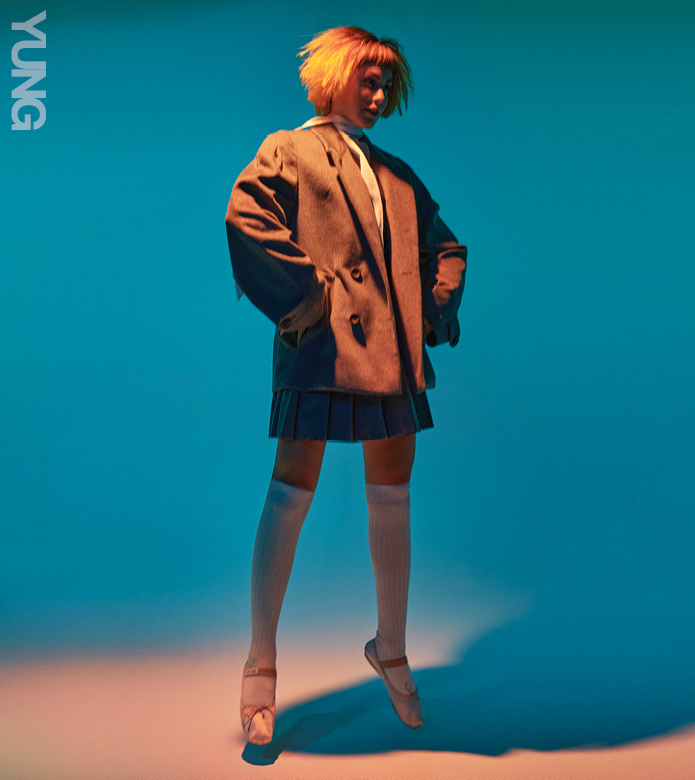
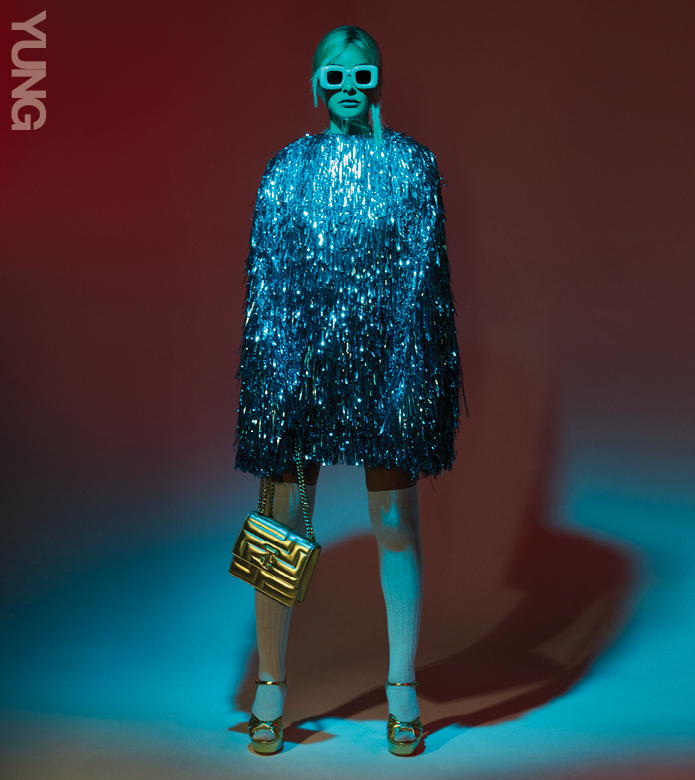
Photography: Louis Decamps
Creative Director: Saif Hidayah
Photo Assistant: Alex Crommar
Stylist: Catherine Hebert
Hair: Alexis Parente
Makeup: Frederique Van Espen
Executive Producer: Lina Merhy
Studio: Upper East Studio